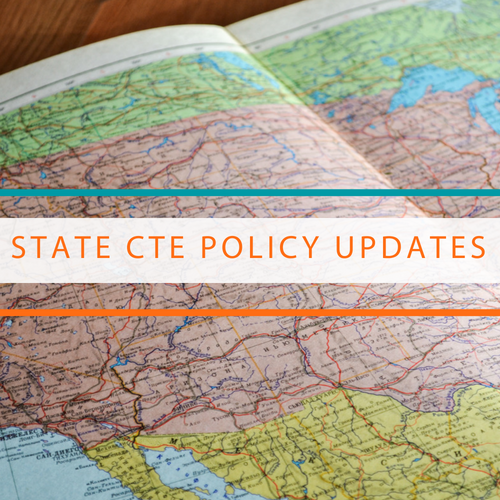 Preparing to enter the workforce is no easy task, especially as the COVID-19 (coronavirus) pandemic continues to transform the world of work. It is critical that apprenticeship, pre-apprenticeship and youth apprenticeship programs exist to allow learners of all ages to participate in significant work-based learning opportunities that connect their learning with on-the-job skills that they can leverage as they grow in careers of their choice. Pre-apprenticeship programs, for example, demonstrate significant benefits, including creating more equitable access to high-wage, in-demand careers and improving the success of apprenticeship programs more holistically. In the past year, at least 19 states enacted legislation impacting work-based learning opportunities, including expanding access to apprenticeships, allowing credit to be earned for out-of-school-time learning, and increasing transparency in communication about apprenticeships. The following policies represent a small sample of pre-apprenticeship, apprenticeship, and work-based learning policies already passed in 2021:
Preparing to enter the workforce is no easy task, especially as the COVID-19 (coronavirus) pandemic continues to transform the world of work. It is critical that apprenticeship, pre-apprenticeship and youth apprenticeship programs exist to allow learners of all ages to participate in significant work-based learning opportunities that connect their learning with on-the-job skills that they can leverage as they grow in careers of their choice. Pre-apprenticeship programs, for example, demonstrate significant benefits, including creating more equitable access to high-wage, in-demand careers and improving the success of apprenticeship programs more holistically. In the past year, at least 19 states enacted legislation impacting work-based learning opportunities, including expanding access to apprenticeships, allowing credit to be earned for out-of-school-time learning, and increasing transparency in communication about apprenticeships. The following policies represent a small sample of pre-apprenticeship, apprenticeship, and work-based learning policies already passed in 2021:
- Arkansas SB491 establishes definitions for pre-apprenticeship and youth apprenticeship to support statewide coordination of these models. The law also requires a member representing the Division of Career and Technical Education to be added to the Arkansas Apprenticeship Coordination Steering Committee.
- Colorado HB1007 creates a state apprenticeship agency within the Department of Labor and Employment to grow apprenticeship programs in high-demand occupations and oversee the quality of existing apprenticeship programs. A state apprenticeship council is also created to oversee Registered Apprenticeship programs and consists of representation from Career Technical Education (CTE).
- Indiana HB1549 creates a catalog of work-based learning, pre-apprenticeship and Registered Apprenticeship opportunities statewide to help provide more information to Indiana residents, among other education-related matters.
- North Dakota HB1478 enables a school board to allow learners in grades 6-12 to earn course credit through educational opportunities such as work-based learning, pre-apprenticeships, apprenticeships, internships and industry certifications with a sponsoring entity such as a business, for- or non-profit organization or trade association.
- Tennessee HB0842 requires each public high school to designate an apprenticeship training program contact. The Department of Education will then compile and publish an aggregate contact list of all program contacts statewide on an annual basis.
- Texas SB1095 directs school districts to notify each parent of a ninth grader or above about the availability of CTE or other work-based education programs available in the district including internships, externships or apprenticeship programs.
Advance CTE’s 2021 Without Limits: A Shared Vision for the Future of Career Technical Education (CTE Without Limits) calls for a cohesive, flexible and responsive career preparation ecosystem that allows learners to participate in aligned and connected work-based learning systems, like industry-aligned apprenticeships. Visit our CTE Without Limits landing page for our call to action and the Learning that Works Resource Center for more resources surrounding work-based learning, including pre-apprenticeship and Registered Apprenticeship.
Dan Hinderliter, Policy Associate
Tags: Arkansas, Colorado, Indiana, North Dakota, state policy, tennessee, texas

